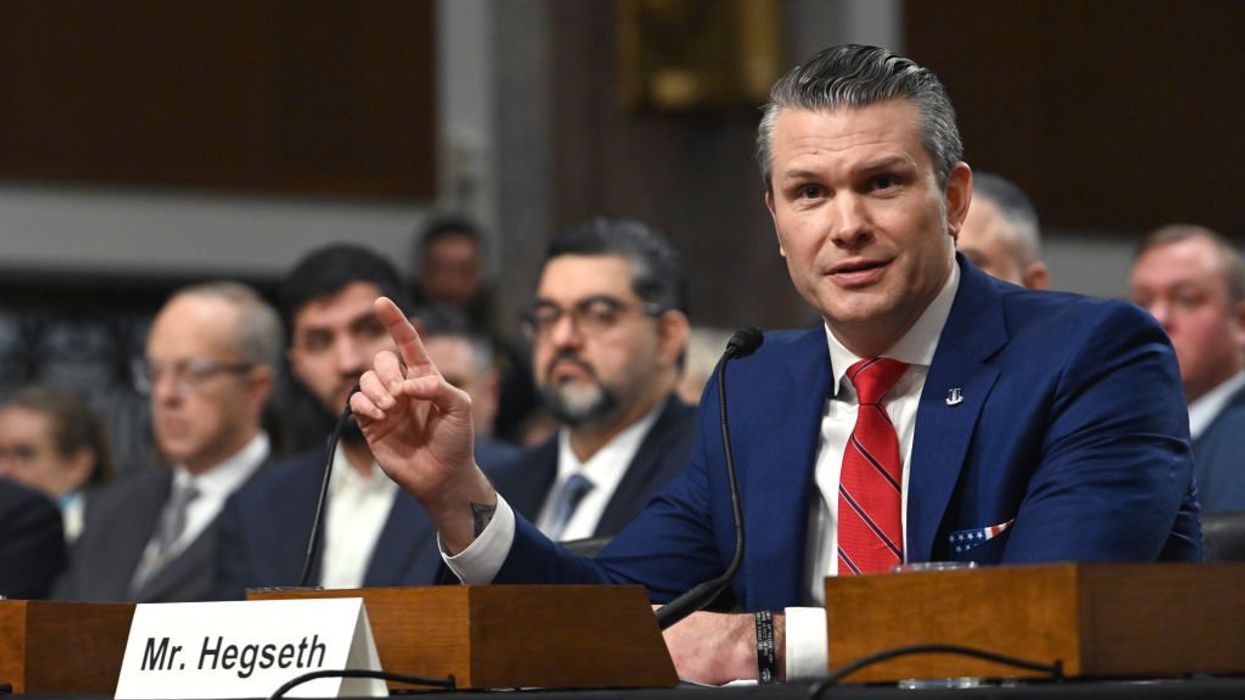President-elect Donald Trump’s nomination of Pete Hegseth as defense secretary set the stage for a series of confirmation hearings ahead of the inauguration on January 20.
During Tuesday’s hearing, Democrats raised concerns about Hegseth’s qualifications, particularly regarding his experience in managing nonprofit finances and his personal conduct. They argued that he does not meet the expected standards for a leader at the Pentagon.
Meanwhile, Trump’s allies have been actively working to sway Republican senators, including potential threats to support primary challengers against those who oppose the nomination.
Senate Majority Leader John Thune has expressed optimism about Hegseth’s chances for confirmation. "I think he's got a [confirmation] path," he toldFox News ' Laura Ingraham.
Here’s the schedule:
Wednesday, Jan. 15
9 a.m.
South Dakota Gov. Kristi Noem, picked to lead the Department of Homeland Security, is slated to appear before the Senate Homeland Security and Governmental Affairs Committee
9:30 a.m.
Pam Bondi, picked for attorney general, is slated to appear before the Senate Judiciary Committee
10 a.m.
Sen. Marco Rubio, secretary of state pick, is set to appear before the Senate Foreign Relations Committee
Former Rep. John Ratcliffe, pick for CIA director, is set to appear before the Senate Intelligence Committee
Former Rep. Sean Duffy, pick for transportation secretary, will appear before the Senate Commerce, Science and Transportation Committee
Liberty Energy CEO Chris Wright, pick for energy secretary, is scheduled to appear before the Senate Energy & Natural Resources Committee
1 p.m.
Russell Vought, pick to be director of the Office of Management and Budget, is set to appear before the Senate Homeland Security and Government Affairs Committee
Thursday, Jan. 16
10:00 a.m.
Former governor of North Dakota Doug Burgum, Interior Department pick, appears before members of the Senate Energy and Natural Resources Committee
Former NFL player who ran the White House Opportunity and Revitalization Council in Trump's first term, Scott Turner, Housing and Urban Development Department pick, appears at a hearing before the Senate Banking, Housing and Urban Affairs Committee
Former New York congressman Lee Zeldin, Environmental Protection Agency pick, appears before the Senate Environment and Public Works Committee
10:15 a.m.
Pam Bondi returns before the Senate Judiciary Committee
10:30 a.m.
Billionaire money manager, Scott Bessent, Treasury Department pick, takes questions from members of the Senate Finance Committee.
What is the Cabinet?
Presidents guide the federal government with the support of a team of close advisers and the leaders of various federal agencies, such as the Department of Justice and the Pentagon.
While certain positions, like the vice president and the White House chief of staff, do not require Senate approval, most cabinet positions do. Some roles, such as the U.S. ambassador to the United Nations or the CIA director, have been considered at the Cabinet level in some administrations but not in others.
Why does the Senate get a say?
Article II is the section of the Constitution that deals with the executive branch. Section II, it makes clear that while the president is the executive, he hires certain positions spelled out in the Constitution and others established by law with the “advice and consent” of senators.
How does the process work?
A president-elect nominates his picks for top officials after winning the election.
Oversight committees in the Senate can conduct confirmation hearings before Inauguration Day on January 20. They can refer nominees to the full Senate or quick votes when the new president takes the oath of office.
Some reporting for this article was curated from the Associated Press, NPR, and NBC.


















 A woman prepares to cast her vote on May 4, 2025 in Bucharest, Romania. The first round of voting begins in the re-run of Romania's presidential election after six months since the original ballot was cancelled due to evidence of Russian influence on the outcome. Then far-right candidate Calin Georgescu surged from less than 5% days before the vote to finish first on 23% despite declaring zero campaign spending. He was subsequently banned from standing in the re-rerun, replaced this time round by George Simion who claims to be a natural ally of Donald Trump.Getty Images, Andrei Pungovschi
A woman prepares to cast her vote on May 4, 2025 in Bucharest, Romania. The first round of voting begins in the re-run of Romania's presidential election after six months since the original ballot was cancelled due to evidence of Russian influence on the outcome. Then far-right candidate Calin Georgescu surged from less than 5% days before the vote to finish first on 23% despite declaring zero campaign spending. He was subsequently banned from standing in the re-rerun, replaced this time round by George Simion who claims to be a natural ally of Donald Trump.Getty Images, Andrei Pungovschi

Trump & Hegseth gave Mark Kelly a huge 2028 gift